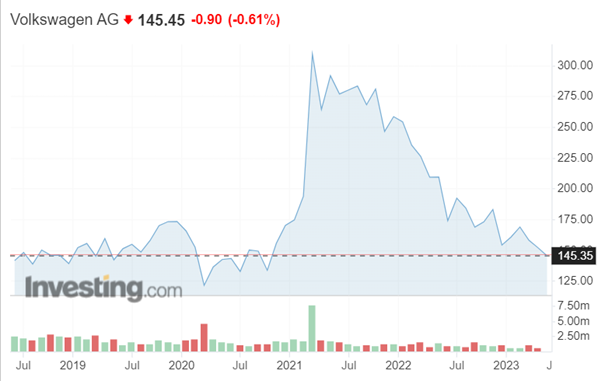Article on Reuters said that Volkswagen's Chief Operating Officer, Ralf Brandstaetter, stated in an interview that the company will not engage in a price-driven discount competition in China, emphasizing their focus on a sustainable business model. With increasing competition from Chinese electric car manufacturers who have been more successful in the market, Volkswagen remains committed to profitability rather than chasing sales volume or market share. Brandstaetter expressed confidence in Volkswagen's strong market position and highlighted their aspiration to be the leading international carmaker in China, regardless of whether a domestic manufacturer surpasses them in sales. He also projected the Chinese car market to grow to 28-30 million vehicles by 2030 and stated that if Volkswagen achieves sales of over 4 million vehicles with corresponding profitability, it would be a satisfactory outcome for the company. Earlier this year, Chinese manufacturer BYD surpassed Volkswagen as the top passenger car brand in China, marking a shift in the market dynamics.
To see if the decision to not join the war turns out to be good, I will have to wait a few weeks. However, it can be double-edged sword. On one hand, that means that cars will keep the same price, meaning same profit for the company and shareholders. But on the other hand, I have a feeling that in time of crisis people will rather go for cheaper cars.
Stocks of Volkswagen are performing rather well in my opinion. Since their start in 1994, the value of stocks grew for 535%.* However, this percentage is also after the correction, which happened during the last year. The highest growth company showed was 1100% in 2015. Current price is 145,45 USD, that is why I decided to buy some shares in the company. * Previous highs give the stock a lot of opportunity to move and make me a potential profit. [1]

Movement of Volkswagen stocks in the last five years. (Source: Investing) *
* Past performance is no guarantee of future results.
[1] Forward-looking statements are based on assumptions and current expectations, which may be inaccurate, or based on the current economic environment which is subject to change. Such statements are not guaranteeing of future performance. They involve risks and other uncertainties which are difficult to predict. Results could differ materially from those expressed or implied in any forward-looking statements.








